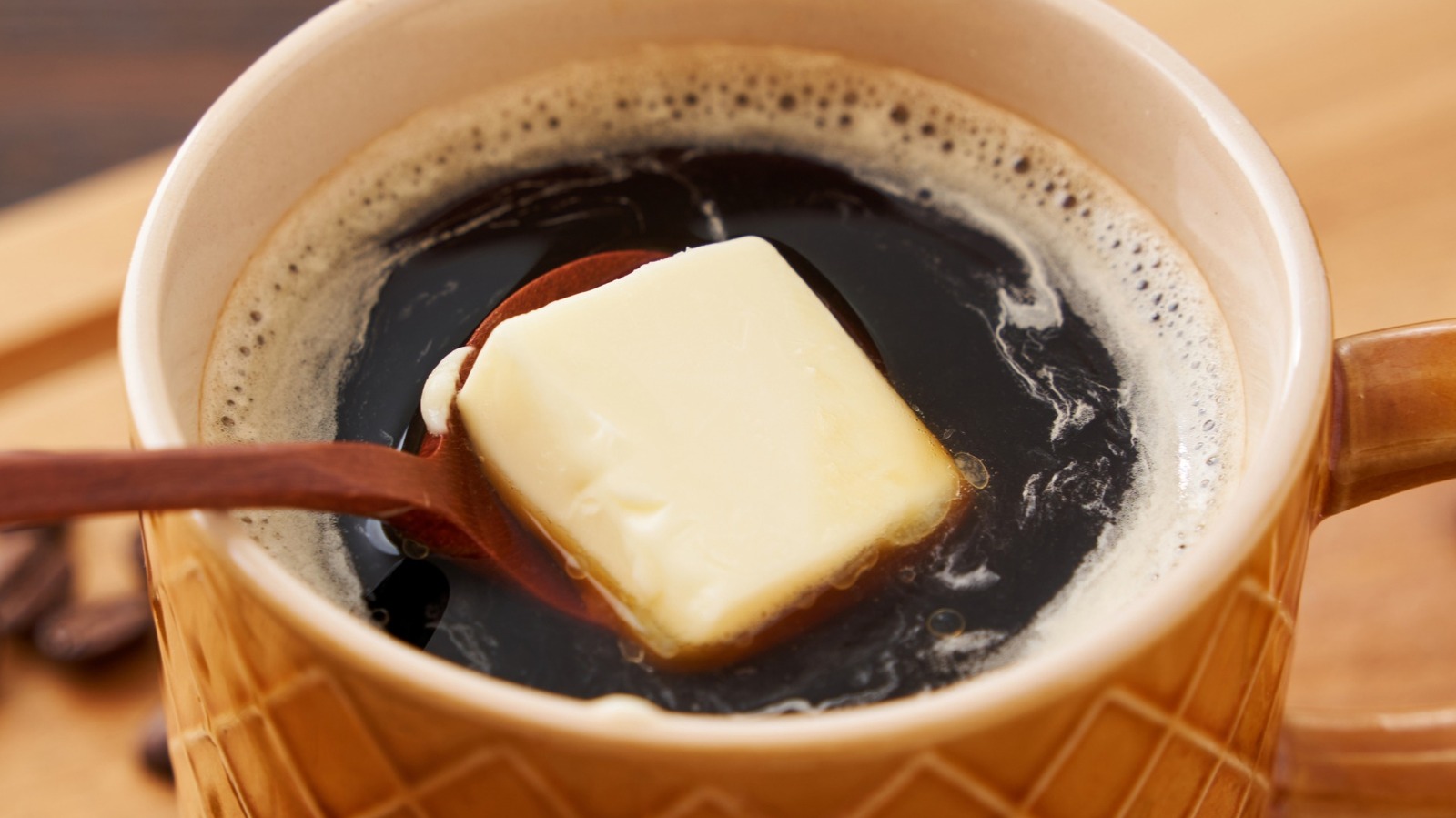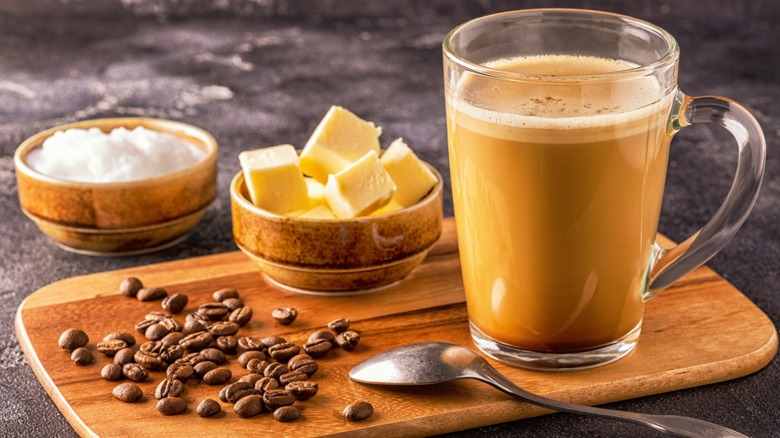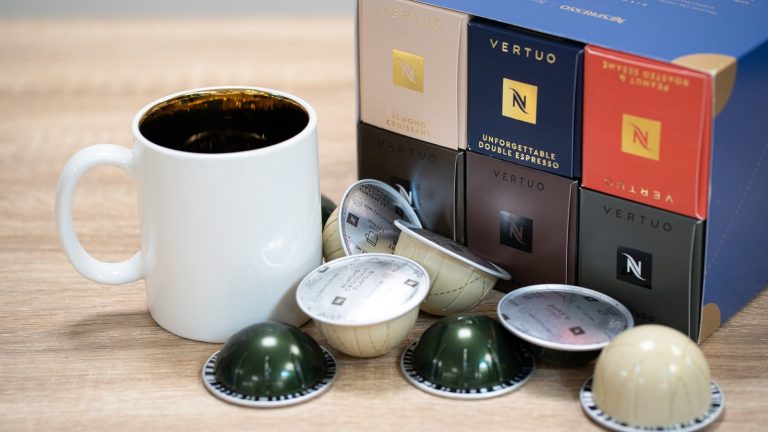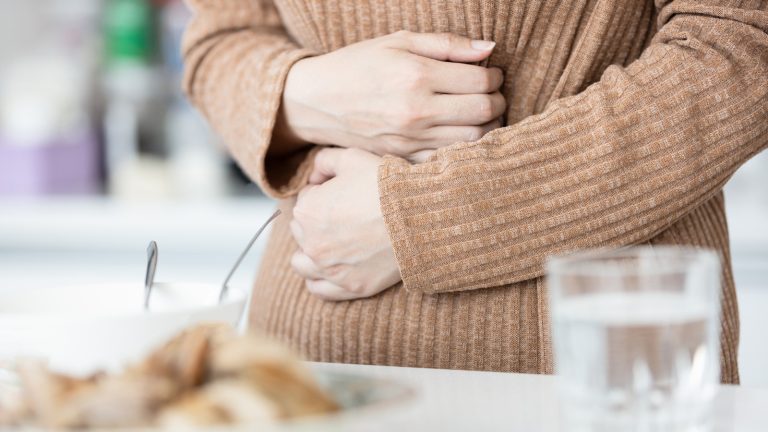Nowadays, the term “bulletproof coffee” has outgrown its origin, no longer referring to the specific brand but to the three-part coffee drink Bulletproof first popularized in the java world. Back in 2009, founder and creator Dave Asprey first posted about Bulletproof coffee on his website, and in 2015, he opened the first dedicated Bulletproof coffee shop in Santa Monica. The floors were plated with metal that Asprey maintained would ground visitors and reduce inflammation in their bodies.
It all started after Asprey tried yak butter tea in Tibet during a hiking trip. Here at Tasting Table, we’re also digging bulletproof butter tea for a bold and creamy drink, but more on taste than alleged superhuman impact — which indeed is where this “Bulletproof” bev takes its name. On the marketing side of its come-up, this fat-enriched brew was more about far-fetched health benefits than it was about flavor. As a 2014 article published in Chicago Mag notes, “Asprey claims that since starting his day with the concoction, he’s lost 100 pounds and boosted his IQ without exercise or getting a full eight hours of sleep.”
In light of such claims, Bulletproof coffee became the subject of heavy criticism from healthcare professionals in the early 2010s. Still, maybe health was never Bulletproof’s goal. As Asprey shared in an interview with Men’s Fitness (via Wanderlust), “I don’t care about health. Everyone wants health. I want high performance — which is an altered state that means I’m three standard deviations away from normal, in the positive direction.”
The drink was marketed to give consumers bulletproof health and strength
Bulletproof coffee was created as part of the low-carb, high-fat keto diet. According to the authority of the official Bulletproof website, the beverage is purported to promote increased energy levels, alertness, cognitive ability, and extend feelings of satiety between mealtimes, which can promote weight loss. However, every foodie has different individual health needs, and expert dietitians advise against having bulletproof coffee every single day. We’d probably suggest ordering one of the many keto-friendly Starbucks drinks instead. It’s also worth mentioning that appetite suppression is not always a healthy or realistic goal for individuals.
In fact, it’s low-key problematic and potentially dangerous if used as a breakfast replacement, as encouraged by Dave Asprey. Some folks have also reported experiencing extreme indigestion after drinking the beverage. Still, if you’re in it for the taste, bulletproof coffee certainly has something to deliver. Each serving combines 1 cup of high-quality brewed coffee with 1 tablespoon of grass-fed ghee (or butter) and 1 tablespoon of MCT oil, mixed together in a blender. While it’s unclear if there is any nutritional benefit to adding butter to your brew, ghee is an ingredient you can add to coffee for a health boost.
MCT (medium-chain triglycerides) oil is a highly concentrated dietary supplement made from distilled coconut oil, and many bulletproof coffee fans simply swap the ingredient for 1 tablespoon of regular coconut oil instead. Robust coffee tones meet the cut of mouthwatering natural acidity, rich ghee, and slight coconutty depth for a bev that tastes oh-so-right. The bitterness gets mellowed for a full-fat, ultra-rich sip that impresses — but that almost certainly won’t give drinkers “bulletproof” superhuman athletic prowess.






